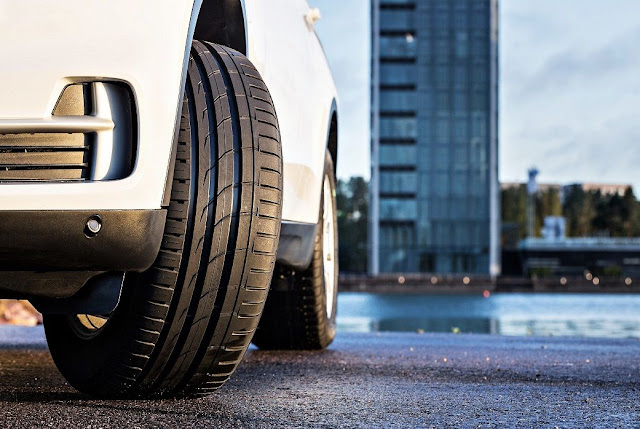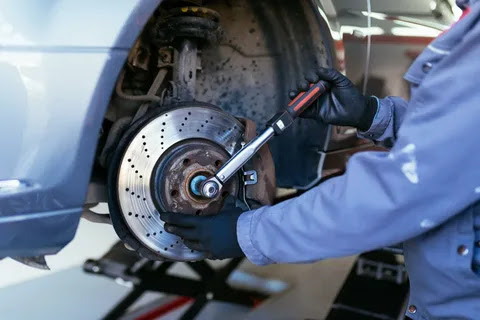Do I Need Summer Tyres?
It's crucial to select a set of tyres that fit your needs when purchasing new ones. Which features are most important to you: longevity, performance, cost savings through fuel efficiency, comfort and quiet ride, or a combination of those?
Summer tyres are made especially to perform at their best in warm weather and summer conditions.
The performance differences between summer-specific tyres and other seasonal tyre types (like winter tyres) might not be immediately apparent. Ultimately, isn't nearly every tyre made to work in warm weather on either dry or wet roads?
While most Tyres Warwick do offer that basic performance, summer tyres are specifically designed to perform at their best under those kinds of circumstances. Tyre manufacturers can optimise tyre performance and characteristics for summer conditions exclusively by eliminating other seasonal conditions from the engineering and design process. This can be a significant advantage.
Even though year-round and multi-season tyre performance is now remarkably capable thanks to modern tyre technology, diverse tyre performance still comes with trade-offs. A tyre that is more specifically engineered to provide adequate traction in any weather condition—rain, snow, ice, and all of the above—will be more capable than one that is more broadly designed. Here, the proverb "jack of all trades, master of none" holds true. Think of all-season tyres as triathletes who are proficient in running, swimming, and cycling. But compared to athletes who concentrate, train, and compete in a single event, triathletes are typically not as skilled in any one of those disciplines.
Because it is their sole design goal, winter tyres offer outstanding traction in below-45°F temperatures and slick road conditions. In a similar vein, summer tyres offer benefits in terms of traction and performance within their own season. Even though the benefits of summer tyres aren't as pronounced or evident, they are still noticeable, especially when it comes to maximum traction when braking, speeding, and cornering on dry or wet roads. Summer tyres stand out in these categories, particularly ultra-high performance (UHP) and high-performance (HP) models.
Summer tyres are designed to perform better in warm weather with either dry or wet road conditions. More specialised performance is produced by this focused engineering approach.
Can I drive summer tires all year?
The definitive response is "no" if you reside in a place with four distinct seasons.
Superior summer/warm weather performance is exclusively sacrificed for winter traction. It is impossible for summer tyres to have enough traction in freezing weather, much less in the presence of snow or sleet. We assure you that driving on summer tyres in winter weather is a mistake you won't make again.
Therefore, when the seasons change, make sure to replace your summer tyres with all-season or winter tyres.
What is the ideal temperature range for summer tyres? When are summer tyres appropriate to wear and remove?
A useful benchmark to remember is 45°F. In general, summer tyres perform best at 45°F and higher. Summer tyres should therefore be worn when the temperature consistently rises above this threshold and removed when it consistently falls below.
Can my summer tyres get damaged by cold weather?
Summer tyres are designed with compounds that provide excellent pliability and traction in warm weather, but harden and effectively "freeze" in colder conditions. This is one of the main reasons summer tyres are insufficient in subfreezing temperatures. Grip is weakened as a result of the tyre tread's improper inability to interact with the road surface. In fact, it's not advised to use some UHP tyres below 50°F.
It is not advised to regularly subject summer tyres to "freeze/thaw" cycles. The durability and performance of summer tyres may be impacted by this activity.
Summer tyre storage
As previously mentioned, it's best to switch your summer tyres for winter or all-season tyres once the temperature drops below 45°F.
How should your summer tyres be stored for the winter after you've made the switch?
Summer tyres should ideally be stored inside a house or structure with controlled temperatures. The garage is the next best thing. Summer tyres should never be stored outside during the winter.
Why Summer Tyres Are More Effective in the Rain and Heat?
Summer tyres are designed to give you the best possible road grip, acceleration, braking, and cornering. First, solid, continuous ribs are usually paired with shallower, straighter grooves in tread patterns. More rubber will always be in contact with the road in this manner. Performance tyres are also typically softer for increased road grip in wet conditions and better heat dissipation in the summer than other tyres because of a unique rubber compound.
There may not be many options for tyre rotation with performance tyres because they frequently have asymmetrical or directional tread patterns. Get the most mileage out of your summer tyres with the assistance of Les Schwab's experts. In many tests, summer tyres can perform better than all-season tyres, but in colder weather, they become rigid, making stopping distances and control less possible.
Are all-season tyres softer than summer tyres?
The heat (or lack thereof) from the road and the surrounding air temperature affect how stiff summer and all-season tyres are. While all-season tyres are constructed with a unique rubber compound that keeps them flexible at temperatures just above freezing, summer tyres are made to hold their shape in warmer weather.
Choosing a new set of Tyres Warwick is largely influenced by what and how you drive, so choose wisely.



Comments
Post a Comment